Featured
WHO WANTS THE NYSC DEAD?

By Rems Akinola
The National Youth Service Corps (NYSC) was conceptualized as a veritable vehicle to galvanized national unity and integration, speeding up the healing process of a country just emerging from the pains of a bloody civil war which left in its wake great devastations in both human and material terms, on both sides of the conflict.
The birthing of the Scheme in 1973 was a follow – up to the three Rs of Reconciliation, Reconstruction, and Rehabilitation pronounced by the by then Head of State, Gen Yakubu Gowon’s Administration at the end of the Biafra/Nigeria civil war in 1970.
The first set of Corps Members who commenced service in July 1973 were graduates of the then existing Nigerian Universities of the 1972/73 academic session who did so amid protests by the would-be Corps Members, their parents, and guardians. The students thought it’s not worth it, “wasting” a whole year to the so-called service to the nation, when companies were in a queue to employ them, with a guaranteed car loan and good life.
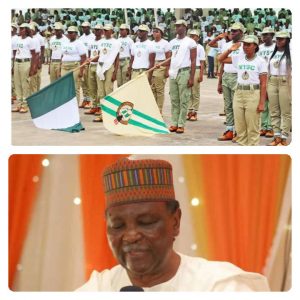
On the part of their parents and guardians, they felt that letting their sons and daughters travel to far-flung states constituted a heavy security risk, given that the wounds inflicted by the civil war were still fresh.
Notwithstanding the protests, the then Federal Military Government was resolute in going ahead with the establishment of the Scheme, having given due consideration to the perceived gains derivable from the Corps.
Therefore, 2364 graduates of the universities constituted the pioneer members of the Scheme, deployed to the then twelve states of Nigeria.
Interestingly, the Corps, having weathered so many existential storms has grown exponentially over the past forty – seven years, mobilizing currently for service over 300,000 Nigerian youths, hence making it the biggest youth – mobilization agency in the globe.
The question begging for answer is: After 47 years, who wants the Scheme dead, albeit instalmentally?

The traditional and new media were awash with the report of the Osibanjo – led Economic Sustainability Committee, recommending the suspension of the NYSC Orientation programme for two years. The Committee further proposed the deployment of Prospective Corps Members from their higher institutions of graduation, straight to states of service.
The position of the Committee, doubtlessly fraught with so many flaws is manifestly antithetical to the philosophy behind the establishment of the Scheme as the Orientation camp introduces the Corps Members to the service Scheme.
In fact, as an ex – Corps Member from the South West, a stakeholder of the Scheme that faithfully served in Niger State which broadened my horizon, I can aptly say that the Orientation camp is the launching pad for the one-year national service. It affords Corps Members a better understanding of the objectives of the Scheme; acquaints them with their environment in their political, cultural, social and economic setting, while preparing them for their particular roles in the Scheme.
The Orientation camp is a regimented environment which inculcates the spirit of discipline among the Corps Members — a primary ingredient needed for national rebirth, by subjecting them to military drills; and educating them on nationalistic issues.
Ordinarily, some of the youths wouldn’t have had the opportunity to travel to those places, save the scheme. But more importantly, it enables youths from across the country the opportunity to interact.
Above all, the Orientation camp lays the foundation for the much envisaged national unity and integration through the interaction of Corps Members from diverse ethnic groups, social strata, and religious backgrounds.
Lasting friendships cutting across tribe and religion have been built over the years; in addition to intertribal marriages that arose as a result of exposure to the Orientation camp. Who then wants the NYSC dead?
Sadly, over the years, the NYSC Scheme has remained a hapless head that receives underserved ruthless knocks from every Tom, Dick, and Harry. Most of the challenges besetting the Scheme are extraneous to it.
Truly speaking, I don’t envy the managers of the Scheme, especially the PR managers who usually have a lot of explanations to offer when NYSC suffers vicariously for other agencies’ failings.
For instance, if a Corps Member comes on harm’s way, even in his father’s house, as long as he’s a Corps Member, the Scheme must take responsibility for his fate.
The NYSC is blamed for every wrong thing in Nigeria, from unemployment to insecurity. Some people would often ask derisively: After NYSC, what next? The rhetorical question is borne out of the spiraling unemployment situation in the country which of course is not the making of the Scheme, as Corps Members can never be insulated from the vagaries of the economy.
It’s heartwarming to note that the Scheme answered the rhetorical question with the introduction of the NYSC skill acquisition and entrepreneurship development programme, which has in camp and post-camp components.
While in the camp, Corps Members are exposed to skill training in chosen skill sets and they continue with the training after the Orientation course.
From diligent investigation, a number of ex – Corps Members have been able to set up thriving businesses, arising from the NYSC skill acquisition programme.
I have a female cousin who studied Architecture, but today earns a living from the business of hat, bag, and shoe – manufacturing, employing, and mentoring four employees.
Therefore, cutting off the Orientation programme which I hold as a veiled attempt to reach the jugular of the Scheme, will be akin to dealing an unkind cut to the youths.
NYSC unarguably remains the major youth programme in the country, and no amount of resources expended on youth – development is a waste. The youths are the future of this country, and the future of this country should not be toyed with.
I hastily posit that I consider giving focus to the youths as one of the greatest achievements of the Scheme. The Orientation camp is like a crucible that changes the perception of an average Corps Member about life.
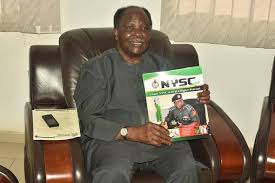
Is it not amazing that many cultists who drop the toga of cultism before entering the camp since the NYSC has zero-tolerance for cultism leave the camp after three – weeks with a refocused mindset, abandoning the figurative toga left at the entrance of the gate.
It’s still very doubtful that anyone who served the nation diligently as a Corps Member would support tinkering with the soul of the NYSC — the Orientation camp, unless for political expediency, as pundits have begun to give political coloration to the recommendation of the Osibanjo — led Economic Sustainability Committee.
Many have alleged that the Scheme has become an albatross for so many politicians that evaded service; therefore they must conspiratorially snuff life out of the Scheme insidiously.
Who wants the NYSC dead? The Scheme is a microcosmic Nigeria. Killing the Scheme in any guise is akin to piercing the heart of the nation with a hot knife, which after all may give the day to the promoters of separatist movements and tribal jingoists.
Nigerians are watching the President to know his reaction. Will he acquiesce to the recommendation of the Committee which on the face value appears innocuous, but in reality, a representation of a gold chalice, laden with poisonous venom.
The NYSC scheme is fulfilling its mandate and nothing should hamper its operations; if anything, it must be guarded jealously
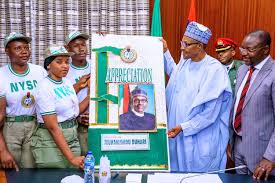

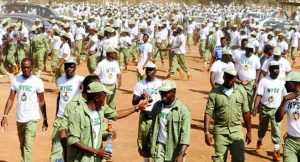
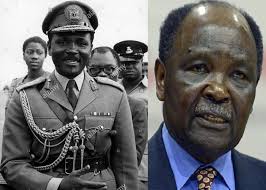
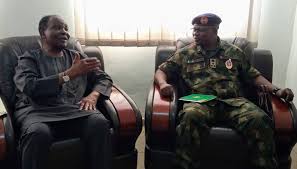

Featured
Nigeria’s Historic Bid for the 2030 Commonwealth Games: A Call for National and Global Support

Joel Ajayi
Nigeria is poised to make history as it seeks to host the Centenary Commonwealth Games in 2030, a monumental opportunity that promises to transform the nation’s economy, infrastructure, and global standing.
More than a sporting spectacle, the Games would serve as a catalyst for development across multiple sectors, leaving behind a legacy of national pride and sustainable growth.
The benefits of hosting the Games extend far beyond the sports arena. Nigeria stands to gain both empirical and non-empirical advantages, with direct, indirect, and induced impacts that will touch every corner of society. Infrastructural development will take center stage, with new facilities such as indoor sports halls, conference centers, and improved road networks reshaping urban landscapes while strengthening the nation’s capacity to host future international events.
Economic growth is another significant dividend. Over 10,000 jobs are expected to be created, spanning construction, facility management, event planning, and tourism services.
The hospitality industry will undergo major improvements as hotels and resorts are upgraded to meet international standards, while local restaurants, lounges, and tourist attractions will see a surge in patronage from international visitors. Small and medium enterprises, particularly in the transport, finance, and food service sectors, will become some of the greatest beneficiaries, as the Games generate new demand and expand opportunities for local businesses.
The Commonwealth Games will also accelerate the growth of Nigeria’s sports industry.
Investments in training facilities, coaching, and talent development will inspire a new generation of athletes, ensuring long-term benefits that extend beyond 2030, a major focus of the President Bola Tinubu administration.
At the same time, the process of preparing for the Games will create opportunities for Nigerians to learn new crafts, acquire technical skills, and engage in global-standard event management, thereby strengthening human capacity and innovation across industries.
Mallam Shehu Dikko, Chairman of the Nigeria Sports Commission, and Hon. Bukola Olopade, the Director General, have been widely recognized for their tireless and visionary leadership in repositioning Nigeria’s sporting sector.
Their commitment to facilitating infrastructural development and strengthening grassroots sports development has laid the foundation for Nigeria’s bold bid to host the 2030 Commonwealth Games. Under their leadership, the NSC is fostering strategic partnerships and driving innovation in sports administration, they have demonstrated the nation’s readiness to stage an event of such global magnitude.
Beyond the tangible gains, the hosting of the 2030 Commonwealth Games carries profound symbolic value. It would be a moment of unity and pride, a chance for Nigeria to showcase its cultural richness, resilience, and excellence to the world.
As a centenary edition, the Games would stand as a historic milestone not just for the Commonwealth but for Nigeria itself, cementing its place on the global stage as a capable, ambitious, and forward-looking nation.
The gains from hosting the Commonwealth Games can never be undermined or overemphasized. This is Nigeria’s time to step forward and show the world our resilience, and excellence. We call on every Nigerian, across sectors and communities, to support this noble aspiration.
Nigeria’s pursuit of the 2030 Commonwealth Games is a vision for transformation, a blueprint for national development, and a legacy project that will inspire generations to come.
-

 Featured6 years ago
Featured6 years agoLampard Names New Chelsea Manager
-

 Featured5 years ago
Featured5 years agoFG To Extends Lockdown In FCT, Lagos Ogun states For 7days
-

 Featured6 years ago
Featured6 years agoChildren Custody: Court Adjourns Mike Ezuruonye, Wife’s Case To April 7
-

 Featured6 years ago
Featured6 years agoNYSC Dismisses Report Of DG’s Plan To Islamize Benue Orientation Camp
-

 Featured4 years ago
Featured4 years agoTransfer Saga: How Mikel Obi Refused to compensate me After I Linked Him Worth $4m Deal In Kuwait SC – Okafor
-
Sports3 years ago
TINUBU LAMBAST DELE MOMODU
-

 News9 months ago
News9 months agoZulu to Super Eagles B team, President Tinubu is happy with you
-
Featured6 years ago
Board urges FG to establish one-stop rehabilitation centres in 6 geopolitical zones
